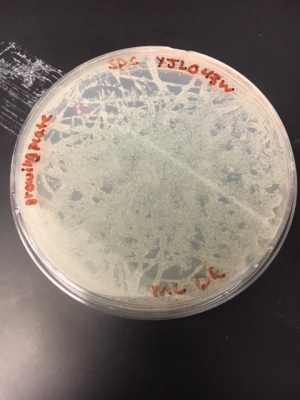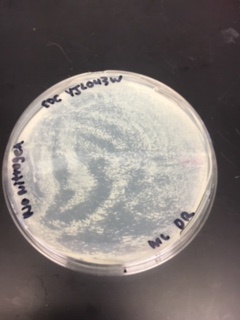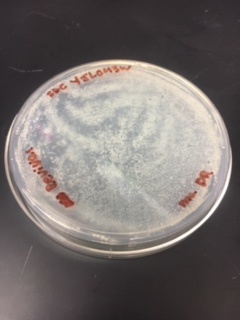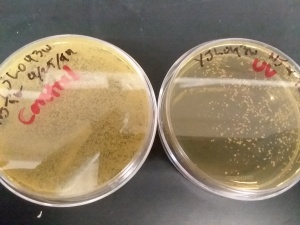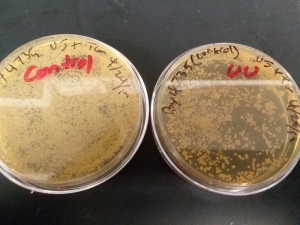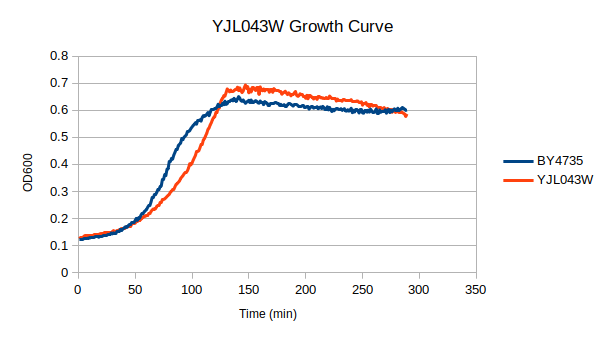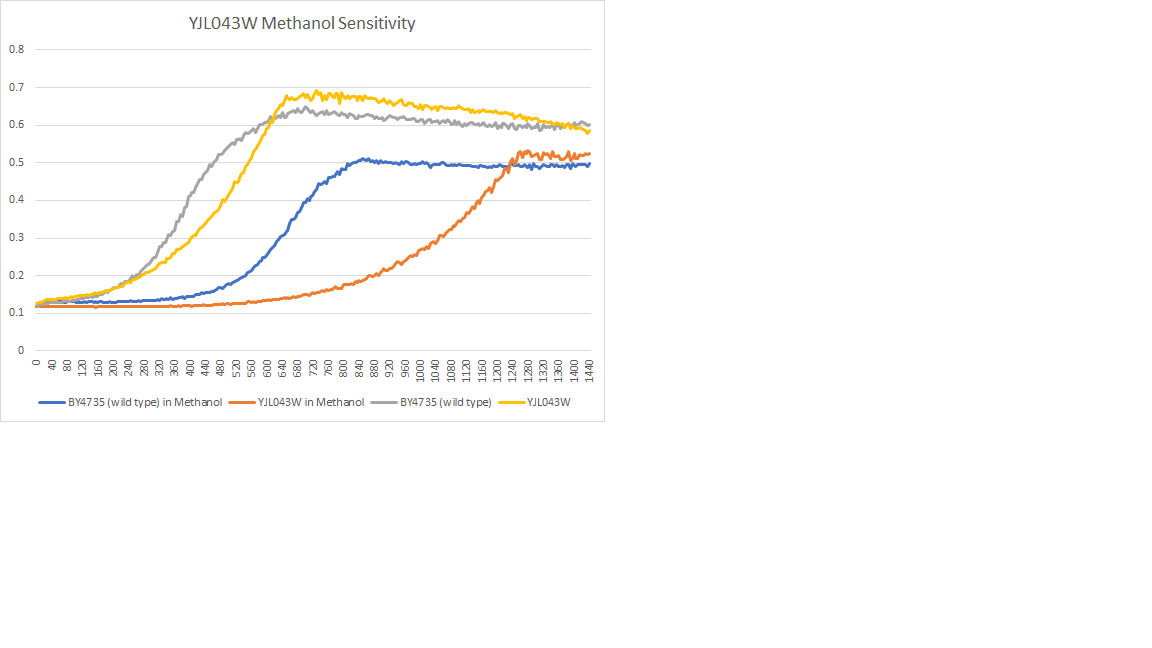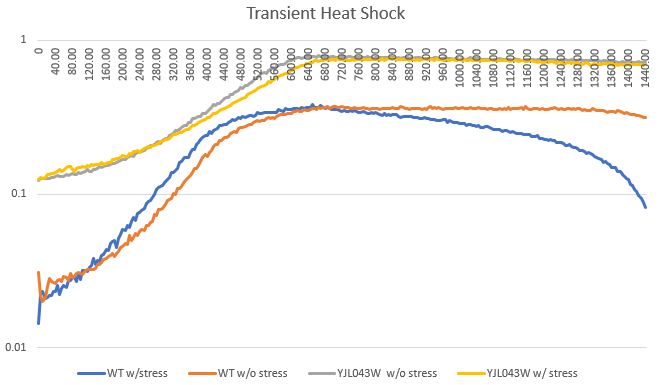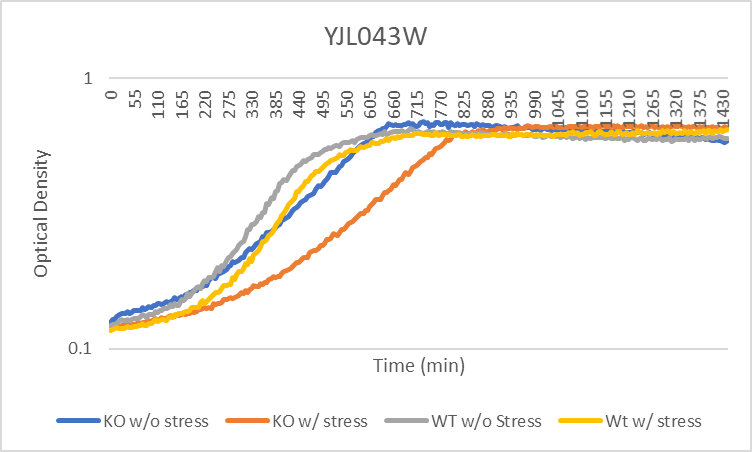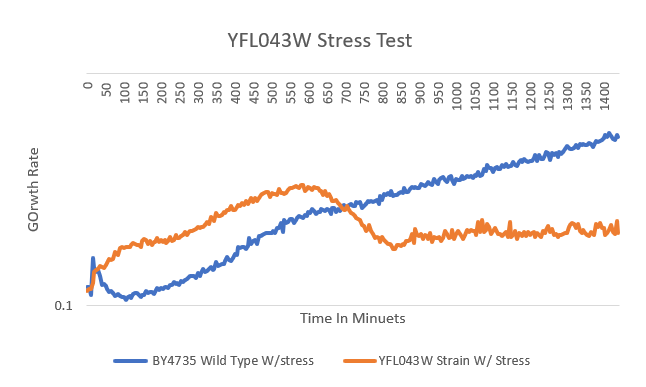Difference between revisions of "YJL043W"
(→Cold Shock Sensitivity) |
(→Cold Shock Sensitivity) |
||
| Line 105: | Line 105: | ||
[[File:YJL043WBB.png]] | [[File:YJL043WBB.png]] | ||
Cold Shock Protocol [[https://wiki.yeastgenome.org/index.php/UW-Stout/Cold_Shock]] | Cold Shock Protocol [[https://wiki.yeastgenome.org/index.php/UW-Stout/Cold_Shock]] | ||
| + | |||
| + | |||
| + | Protocol: [https://wiki.yeastgenome.org/index.php/UW-Stout/Cold_Shock Cold Shock] | ||
Revision as of 17:59, 9 May 2019
Share your knowledge...Edit this entry!
| Systematic name | YJL043W |
| Gene name | |
| Aliases | |
| Feature type | ORF, Uncharacterized |
| Coordinates | Chr X:360130..360903 |
| Primary SGDID | S000003579 |
Description of YJL043W: Putative protein of unknown function; YJL043W is a non-essential gene[1][2]
Contents
Community Commentary
About Community Commentary. Please share your knowledge!
UW-Stout/Sensitivity To Nitrogen Starvation
Knocking out the YJL043W seems to have no effect on growth after incubating for 5 days on the Nitrogen omitted media.
Ultraviolet Sensitivity
YJL043W is more sensitive than BY4735(wild) given that there is less colonizes present when under the same stress.
This gene is part of the UW-Stout Orphan Gene Project. Learn more here.
Growth Curve
In a BY4735 background, knocking out YJL043W seems to have little to no effect on growth rate in log-phase. In this assay, the BY4735 strain's doubling time was 124 minutes, while the YJL043W knock-out strain's doubling time was 155 minutes.
G-418 Stress
In a BY4735 background, knocking out YJL043W seems to have a small effect on the growth, the difference was less than BY4735. In the knock-out experiment, the BY4735 strain's doubling time was 149 minutes, while the YJL043W knock-out strain's doubling time was 237 minutes. In the calibration experiment, the BY4735 strain's doubling time was 64 minutes, while the YJL043W knock out strain's doubling time was 185 minutes.
Methanol Sensitivity
Heat Shock
Heat shock had no change on the doubling time, but the starting amount of yeast cells less. The heat seemed to kill off the cells, the longer they were in the hot water bath.
Stressing with Hydroxyurea
Hydroxyurea Protocol -The wild type strain had only a small difference in doubling time when stressed with Hydroxyurea;YJL043W showed about a 20 minute difference of doubling time from the wild type strain when stressed with hydroxyurea, indicating that this gene most likely does not play a vital role in DNA replication.
Fermentation
Fermentation protocol link [1] - There appears to be no major difference in fermentation rate. The lower final ethanol percentage could be a result of evaporation. If this experiment were to be carried out again then it should be done in an air tight container.
Caffeine Sensitivity
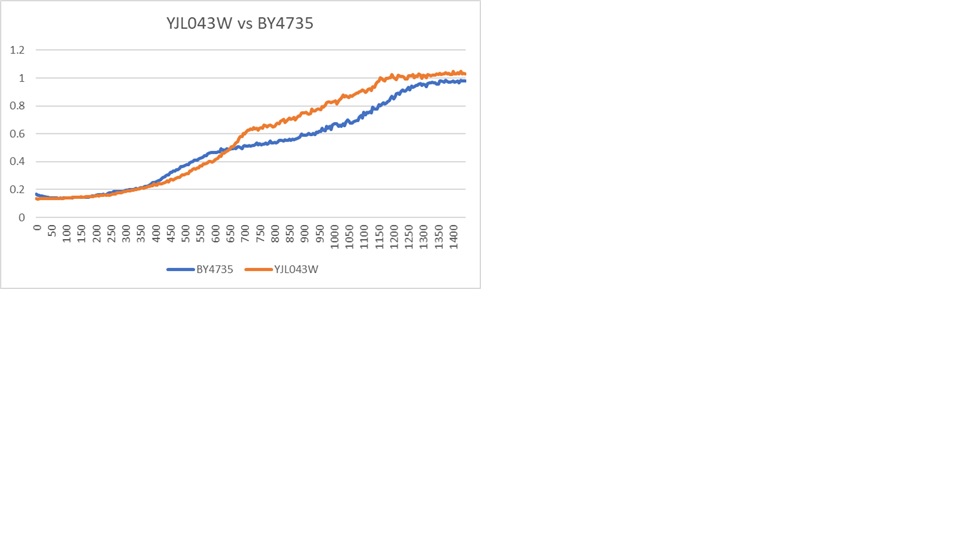 Caffeine Protocol UW-Stout/Caffeine, results very similar, hardly any difference in pace.
Caffeine Protocol UW-Stout/Caffeine, results very similar, hardly any difference in pace.
Stressing with pH
pH stress protocol link [2]
The yeast strain YJL043W had somewhat of a significant difference compared to the wild type even though the wild type keeps growing but not as fast as the yeast strain YJL043W does and the YJL043W strain does plato's at somewhat the middle and then continues to plummets. But wild type keeps slowly climbing at a steady rate of growth and time. So, Therefore we have made a decision that the wild type strain is more resilient to the pH level of 4 we tested it at then the YJL043W Strain is.
Cold Shock Sensitivity
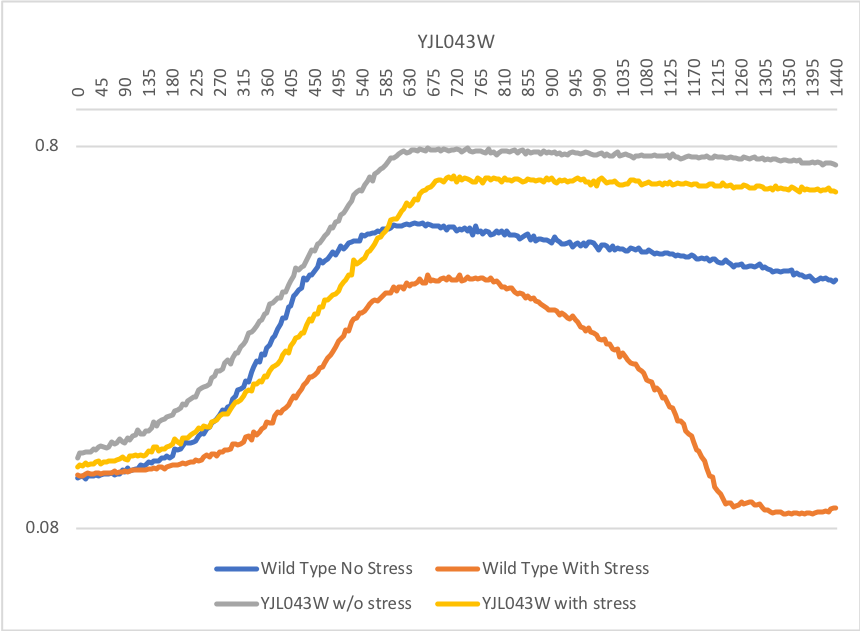 Cold Shock Protocol [[3]]
Cold Shock Protocol [[3]]
Protocol: Cold Shock
The Results from this graph have proven that compared to the wild type there was no significant change in the doubling time. This has proven that its neither more or less sensitive in comparison to the wild type.
References
See Help:References on how to add references
- ↑ Entian KD, et al. (1999) Functional analysis of 150 deletion mutants in Saccharomyces cerevisiae by a systematic approach. Mol Gen Genet 262(4-5):683-702 SGD PMID 10628851
- ↑ Giaever G, et al. (2002) Functional profiling of the Saccharomyces cerevisiae genome. Nature 418(6896):387-91 SGD PMID 12140549
See Help:Categories on how to add the wiki page for this gene to a Category
